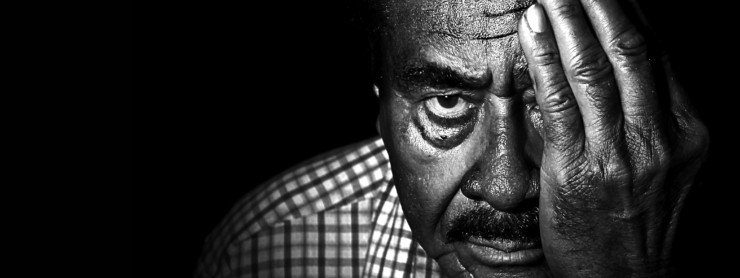 Few things in life are as powerful as being acknowledged. Not for one’s successes. Not for one’s achievements. Being acknowledged purely and only for being, for existing. Unconditional acknowledgement is a very powerful affirmation that one exists. And one of the strongest means for this type of acknowledgement is the process of witnessing.
Few things in life are as powerful as being acknowledged. Not for one’s successes. Not for one’s achievements. Being acknowledged purely and only for being, for existing. Unconditional acknowledgement is a very powerful affirmation that one exists. And one of the strongest means for this type of acknowledgement is the process of witnessing.
Counselling is, in my experience, above all else a process of witnessing. For many clients it is through counselling that they can experience first hand what it means to be heard, to be seen – to be witnessed. No interruptions, no interrogations, not judgments. Merely the possibility of telling one’s story, and having that story be mirrored back. Paraphrased, with a hint of a question here and there to clarify.
One of the most difficult things is to truly engage with each other. To listen to the perceptions of another person, without wanting to “one up” it, or to intervene, or to sympathise, or to correct, or to pick a fight. Just to listen, and let the story be told as it needs telling on that particular day, in that particular way.
 To be a witness to someone else is a tremendous gift. To honour that person’s experience of an event, of a feeling, of an experience by listening without interruptions means that the other person can explore nooks and crannies of the narrative that might otherwise be overlooked, or hidden. Aspects that could otherwise possibly lead to shame or guilt. The gift lies in being completely present, aware that the other person is giving you the privilege of confidentiality and trust. You give your time, your presence, your witnessing. And those, in turn, give the person (or persons) you are with the ultimate affirmation: “You are worth being with, listening to, responding to, empathising with…”
To be a witness to someone else is a tremendous gift. To honour that person’s experience of an event, of a feeling, of an experience by listening without interruptions means that the other person can explore nooks and crannies of the narrative that might otherwise be overlooked, or hidden. Aspects that could otherwise possibly lead to shame or guilt. The gift lies in being completely present, aware that the other person is giving you the privilege of confidentiality and trust. You give your time, your presence, your witnessing. And those, in turn, give the person (or persons) you are with the ultimate affirmation: “You are worth being with, listening to, responding to, empathising with…”
Being Invisible
It is often said that middle children are the unseen members of a family. According to some, they are the ones that fall in between the cracks of families – especially larger families. They are the ones, or so it is believed, who will find it difficult to find a place for themselves (others, as is so often the case in psychology, believe the opposite). I don’t necessarily believe that middle children are the only ones who struggle with their own perceived invisibility. I know of first borns and last borns who have similar experiences as middle children, so I guess other factors apart from merely birth order must be at play. Parenting styles, for example. Innate traits and characteristics of a person could also be relevant. As are social and political circumstances that make that a society ignore the plights of certain (groups of) individuals.

Various approaches within counselling and therapy take those larger contexts into consideration when working with individual clients or groups of individuals. Narrative therapy, for example, places great importance on the process of witnessing. It does so in part to correct a historical wrong inflicted on minorities, whose stories have most often been purposefully ignored, forgotten or – at times – even destroyed, thereby attacking and undermining the very fabric of communities, and of individual psyches. To ignore the narratives of minorities allows the dominant groups to dominate, without guilt or shame.
The same applies to one-on-one relationships.
To ignore the other means to turn a blind eye to their perceptions, their stories, their experiences. Such selective deafness or blindness allows us to life live in a blissful state of ignorance about our own shortcomings, and the pains inflicted by our actions (or our lack of actions) on the ones we live in community with. Ignoring the other can lead to a wide variety of responses: from screaming or aggression to deep neediness, narcissism and a need to dominate. It can also lead to isolation, loneliness and depression.
The process of witnessing turns these phenomena on their head. Instead of moving away from the other, we move towards the other. Instead of neglecting the other’s needs, experiences and perceptions, we turn towards them. That movement in itself carries a tremendous healing potential, for all involved.
What does it take to be a Witness to a Loved One?
 How difficult is it, to truly listen? Admittedly, it is not easy. The hardest part may be the waves of shame and guilt that might arise when we truly hear the other’s story for the first time: “Why could I not hear this before? Why did I choose to be deaf to this…?”
How difficult is it, to truly listen? Admittedly, it is not easy. The hardest part may be the waves of shame and guilt that might arise when we truly hear the other’s story for the first time: “Why could I not hear this before? Why did I choose to be deaf to this…?”
To be a witness means to muster the courage to remain quiet, to absorb and truly hear. To try as best you can to pause a desire to intervene and interrupt, to scream, to correct, to negate what is being said. To figuratively bite your nails and sit on your hands while the other shares their perception of their experiences. To realise that it doesn’t matter whether or not you agree on facts, dates, times; whether or not you agree on what was said or wasn’t said, what was done or what wasn’t done.
The process of witnessing does not attempt to separate fact from fiction, but for the storyteller to be able to tell their story – uninterrupted.
During witnessing it is the storyteller who is the center of all attention. He or she gets to enjoy the experience of being heard, being allowed the respect of other people’s silence. These are in themselves very healing phenomena. When a person feels that they are being heard, that person is being told that they matter. That their story, their perceptions, their experiences are valid and worthwhile.
That they themselves are worthwhile.
Why?
Because they exist, and they have a story to tell about their lives. Their story.




